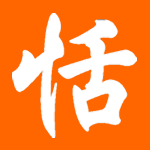Reader anonymous emails:
"Good afternoon, Tian. I have been visiting Hanzi Smatter for some time now. Quite hilarious really. Anyway, an acquaintance recently got a tattoo of, what they think to be, the word "strength". Now, I have usually seen 力 being the kanji for those duties, but that is not the case here. I have looked up several kanji that could mean strength (thinking 強 was the better option), but I have not seen the kanji in the attached photo before, and can't find the true meaning of it anywhere. Any help?
I am sure she thought, whole-heartedly, that it meant 'strength' at the time she got it done. I am also sure she intended it to impress someone who was "into" Japanese or the like. Aside from the tattoo not meaning exactly what they intended - at least it isn't horrible (like explosive poo, or something). The muddiness of the calligraphy itself, however, lends me to think she didn't take much care in picking, at the very least, a good tattoo artist."
The character 豪 means "brave, heroic, chivalrous" and "person with outstanding talent". In Japanese it would also mean "fine feathers/writing brush/a little", as well as phonetically used to represent "Austrilia" as in 豪州. 自豪 means "[self] pride". I am still curious about why this person got a tattoo in a language that she does not understand.


You think the word would have the connontation of Pride? As in proud of oneself?
ReplyDelete自豪 is "[self] pride", but just by 豪 itself, it can be translated into multiple meanings.
ReplyDelete1:powerful and rich 富豪
ReplyDelete2:luxurious;extravagant 豪华
3:bold and unconstrained;forthright豪爽,豪放
Fun trivia note: Fans of the "Street Fighter" video game series might know of a very powerful character named "Akuma." In Japan, he is called "Gouki," written 豪鬼。 You won't find that compound in any Japanese dictionary, but I always thought of it as "strong/powerful spirit."
ReplyDeleteDan, 鬼 in Japanese is a horned ogre, not an evil spirit as in Chinese. When used to describe a person, the closest English translation would probably be "fiend."
ReplyDelete